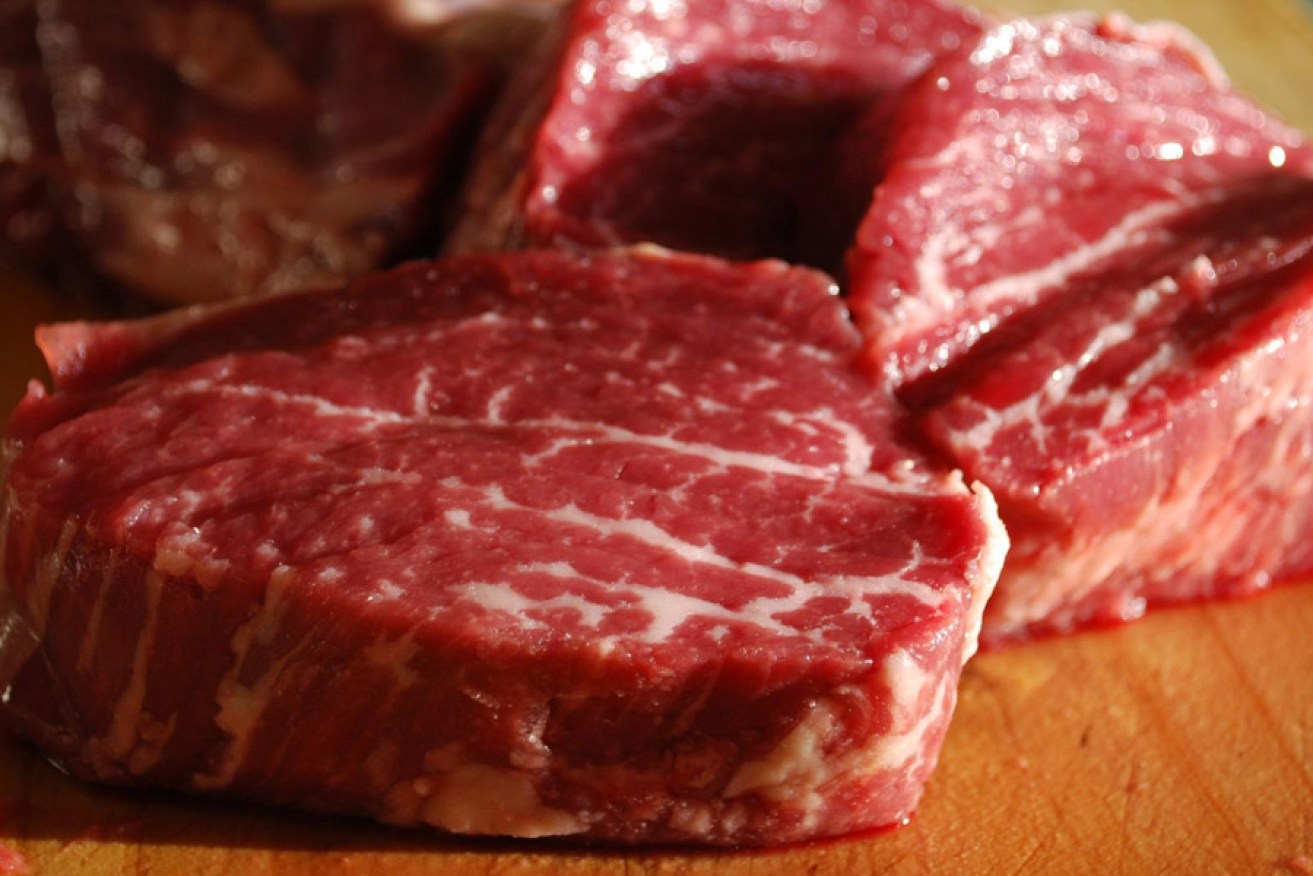Should we be eating like cavemen?

Grass-fed beef is an acceptable Paleo food. Photo: www.littlecreekbeef.com/Flickr
Dieters love a good bandwagon, and one of the latest to hit the scene is the Palaeolithic (or Paleo) – also known as the primal or caveman diet.
Paleo is based on the hunter-gatherer eating patterns practised during the Palaeolithic era (circa 2 million years ago), long before modern agriculture, dairy farms and food in packets.
The theory is that humans once survived and thrived on a diet of natural foods without added sugars and salt, genetic modification, additives, colourings and preservatives. Paleo advocates champion a return to those less-complicated times.
At its core, the Paleo diet is based on foods that occur naturally rather than being produced by large-scale industry.
The rules? No wheat or grains (gluten), no dairy, no legumes, no peanuts (technically legumes), no soy, no sugar, no refined vegetable oils (such as canola oil) and no alcohol. Acceptable foods include grass-fed red meat, hormone-free or organic poultry, pork, wild seafood, eggs, vegetables (but not white potatoes), some fruits, nuts and seeds, and olive and coconut oils.
In real terms, what it means is this: no more cereal for breakfast, no sandwiches or sushi rolls at lunch, and no pasta for dinner. Going even further, it means no milky coffee, no cheese platter and definitely no birthday cake. Even healthy staples get the thumbs-down – hummus is out (chickpeas are a legume and are thus excluded), as is quinoa (a “pseudo-grain”).
It may sound restrictive, but advocates say this way of eating encourages followers to ditch the processed, highly refined and packaged foods that tend to populate the average pantry in favour of whole foods in their natural state.
A typical Paleo meal involves (meat) protein, vegetables and good fats (avocado, nuts, seeds and/or olive and coconut oil). But the “acceptable” protein element can be problematic and expensive in a world where much of our meat is grain-fed, our chicken pumped full of antibiotics and our fish mass-farmed.
Is this diet good for us? There are mixed views. On one side, any method of eating that advocates less-processed food, and more natural, unrefined fare, gets a nutritional tick.
Dr Loren Cordain, author of the book The Paleo Diet, goes as far as to say that this way of eating “maintains therapeutic effects superior to the Mediterranean Diet and diabetic diet and is more nutrient (vitamin and mineral) dense than the standard (American) diet”.
Cordain goes on to say that the Paleo diet “is not a diet at all, but rather a lifetime program of eating to reduce the risk of chronic diseases (obesity, Type 2 Diabetes, heart disease, high blood pressure, high cholesterol and various cancers), which run rampant in Western civilization.”
He recommends replacing processed foods, refined sugars, grains, vegetable oils and dairy foods with living, “real” foods, such as fresh vegetables, fruits, grass-produced meats, poultry, pork, lamb, eggs, fish, shellfish, seeds and nuts.
But others believe the Paleo way of eating is too extreme. Cutting out major food groups, such as dairy and grains, may lead to nutritional deficiencies. The diet is also protein-heavy, encouraging followers to consume meat in large quantities (beef jerky for breakfast, anyone?)
“While the Paleo diet has some excellent features, such as promoting fruit and vegetables, lean meat and fish, it excludes nutritious core foods such as breads and whole grains, and relies heavily on protein to obtain energy,” says Milena Katz, registered dietician and spokesperson for the Dieticians Association of Australia (DAA).
The DAA is concerned that Paleo encourages restrictive eating that may not be sustainable in the long term.
Some people may be happy to permanently forgo cheese, grains and beans, but many are not.
The biggest takeaway from this is the core message: eat real food. Surely you can’t go wrong there.
This is one of a series of articles from Lucy Travers, an entrepreneur in the health and wellness industry who hails from Adelaide and now calls New York City home. Previous columns have looked at coconuts as a “superfood” and the cold-pressed juice trend. In addition to her roles in health-food start-ups, Travers is a health coach and writes about health and wellness on her website, www.lucytravers.com. You can also follow her on Twitter at @LucySTravers




